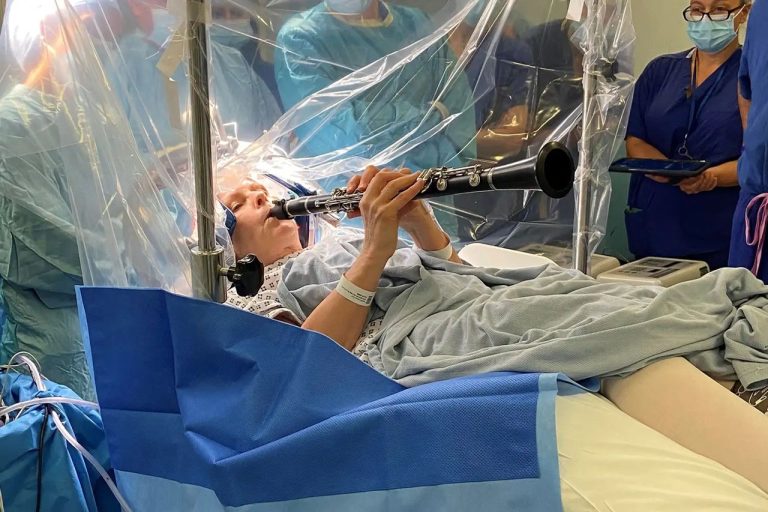In a remarkable medical breakthrough, a 65-year-old woman in the United Kingdom played her clarinet while undergoing brain surgery to treat symptoms of Parkinson’s disease.
Denise Bacon, a music teacher from Crowborough in East Sussex, had struggled to play her beloved instrument for years as the neurological disorder affected her finger movements. Determined to regain her musical ability, she underwent deep brain stimulation (DBS) surgery at King’s College Hospital in London.
During the four-hour procedure, Denise remained awake while surgeons implanted tiny electrodes into her brain. At key moments, she was handed her clarinet to play so doctors could monitor how the stimulation affected her motor control in real time.
“I remember my right hand being able to move with much more ease once the stimulation was applied, and this in turn improved my ability to play the clarinet, which I was delighted with,” she said after the operation.
“Playing the clarinet again during surgery was incredible — it made me realize that I could get my music back.”
Consultant neurosurgeon Dr. Dipankar Nandi, who led the surgical team, said allowing the patient to play during the operation helped them achieve the best possible result.
“Having Denise play the clarinet during surgery allowed us to assess the effects of stimulation in real time and ensure we achieved the best possible outcome for her,” he said.
“It was wonderful to see such an immediate improvement in her ability to play.”
The treatment, which involves placing electrodes in specific parts of the brain and connecting them to a pulse generator implanted in the chest, helps regulate abnormal brain activity that causes tremors and stiffness in Parkinson’s patients.
While the procedure is not a cure, it can significantly reduce the physical symptoms of Parkinson’s disease and improve patients’ quality of life.

